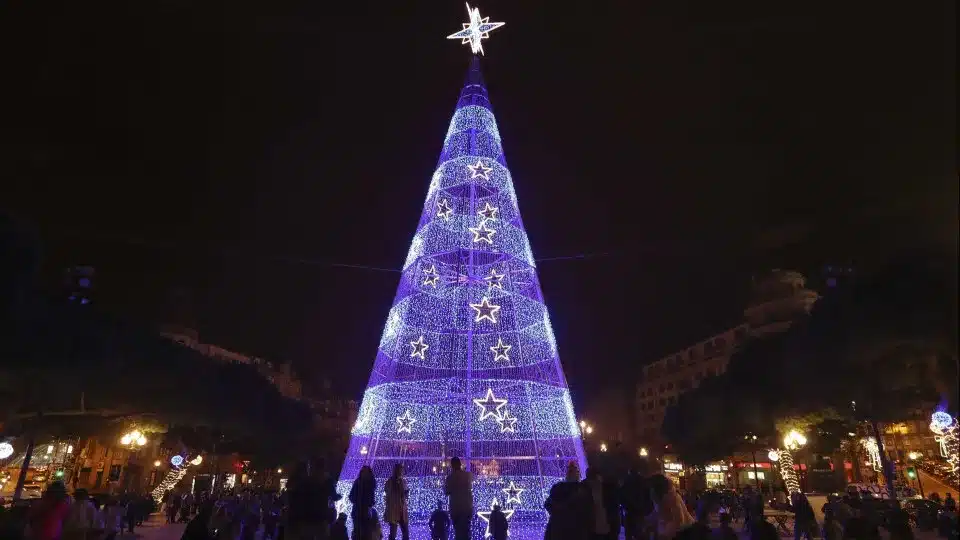Chekhov’s play “The Swan Song” will be premiered on September 11 in Porto, in a production by the São João National Theater to celebrate the 50th anniversary of the Seiva Trupe, with one of its founders, Júlio Cardoso, performing.
The play, which opens the season of the Teatro Nacional São João (TNSJ), will be staged by the theater’s artistic director in the Perpetual Studio Room, which has been home to Seiva Trupe since last year.
Marking a career of more than 60 years as an actor and director, Júlio Cardoso stars in the Russian playwright’s monologue in a show that opens on the day the company celebrates its 50th anniversary and will be on stage until September 17, with sessions every day at 19:30.
Staged by Nuno Cardoso, it is a work that “had already been discussed with Jorge Castro Guedes, director of Seiva Trupe, even before the time of the covid-19 pandemic” and is a way of “collaborating with Seiva Trupe, a historic company from Porto”, the artistic director of TNSJ told Lusa.
It was then that the opportunity arose to create “a little moment with one of Porto’s most famous actors, Júlio Cardoso”, in a show that marks Nuno Cardoso’s debut working with the actor and director, who has been working for 64 years and who he says is giving him great pleasure.
Written in 1887, the Russian playwright’s text, which revolves around a theater actor who, in the show, is left alone to recapitulate what his life was like on stage, set the tone for this TNSJ/Seiva Trupe partnership, leading the national theater to begin its season abroad.
With no family connection to Júlio Cardoso, although they share the same surname, the TNSJ’s artistic director explained that he had chosen Chekhov’s text to be performed by the historic actor from Porto’s theater scene.
“There’s no idea of creating a show beyond celebrating this actor’s career, which spans several decades,” added the director, who met Júlio Cardoso when “he was a kid” and whose work he followed.
It’s been “an immense pleasure to see him on stage doing things”, in a play with artistic input from various members of the TNSJ, but above all from Júlio Cardoso, he said.
“It’s a project that gives me great pleasure because it’s basically my way of paying tribute, I wouldn’t say paying homage, but being with Júlio Cardoso for a while, because sometimes I think memories are short and not just in soccer,” concluded Nuno Cardoso.
“Who am I”, “who needs me” and “who likes me” are some of the questions that the role played by Júlio Cardoso tries to answer in the play about the dignity of the human being and the passage of time, in a text that crosses farce and tragedy.
With seven performances at 7:30pm, the last of which is translated into Portuguese Sign Language, “O canto do cisne” is translated by António Pescada.
The stage and costumes are by TNSJ, with light design by José Rodrigues, sound design by António Bica and video by Fernando Costa. Assisting in the staging is Sandra Salomé.
Founded by actors António Reis, Estrela Novais and Júlio Cardoso on September 11, 1973, coming out of Teatro Experimental do Porto, Seiva Trupe was characterized “from day one by not wanting to be an author’s project, [and] many great directors such as Pere Planella, João Guedes, Ulysses Cruz, Joaquim Benite and others have passed through there,” as you can read on the company’s website.
Seiva Trupe made its stage debut in December 1973, at the now-defunct Teatro dos Modestos, with the play “Musicalim na praça dos brinquedos”, by the Brazilian Stella Leonardos, directed by Júlio Cardoso.
Established at the Teatro do Campo Alegre since 1975, it became the resident company of a building “designed and built to house [it]”, under a protocol with the University of Porto and the City Council, in a process that would have a controversial outcome in 2013, when the company was evicted during Rui Rio’s mandate.
The company was decorated by the then President of the Republic, Aníbal Cavaco Silva, with the rank of Honorary Member of the Order of Merit in 2010.









